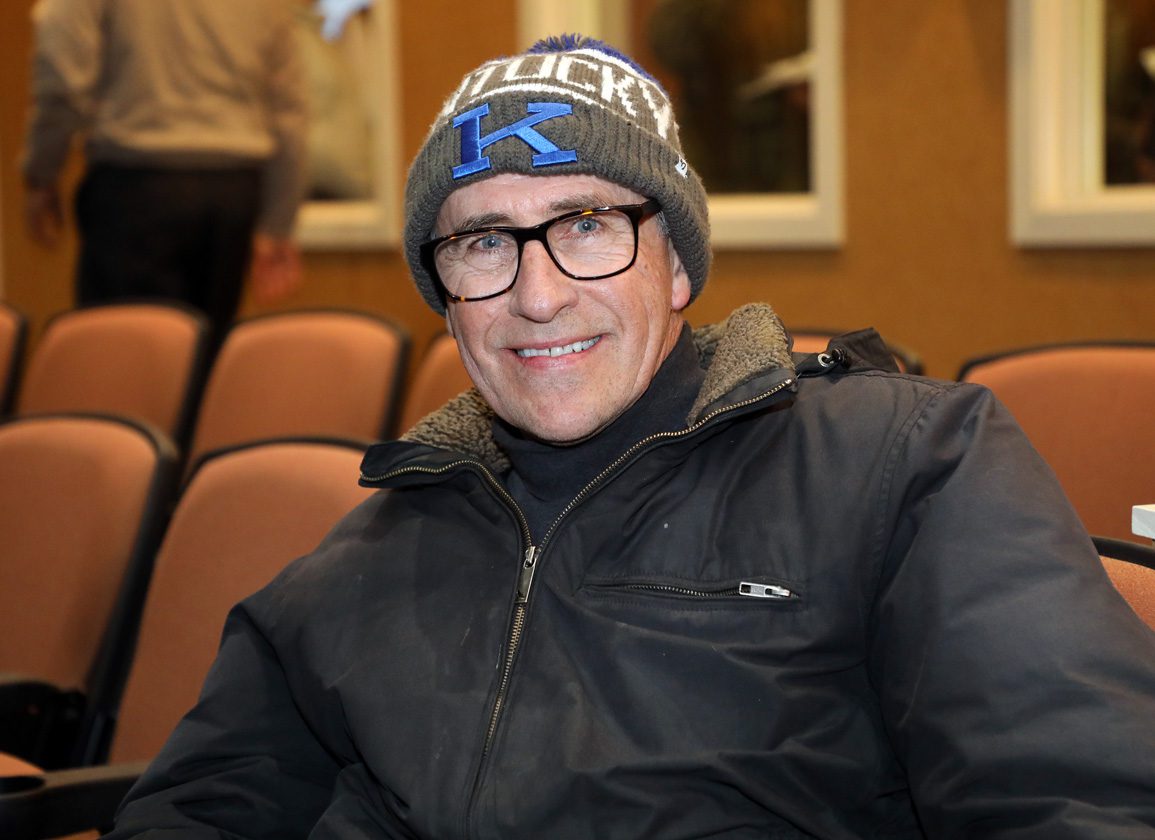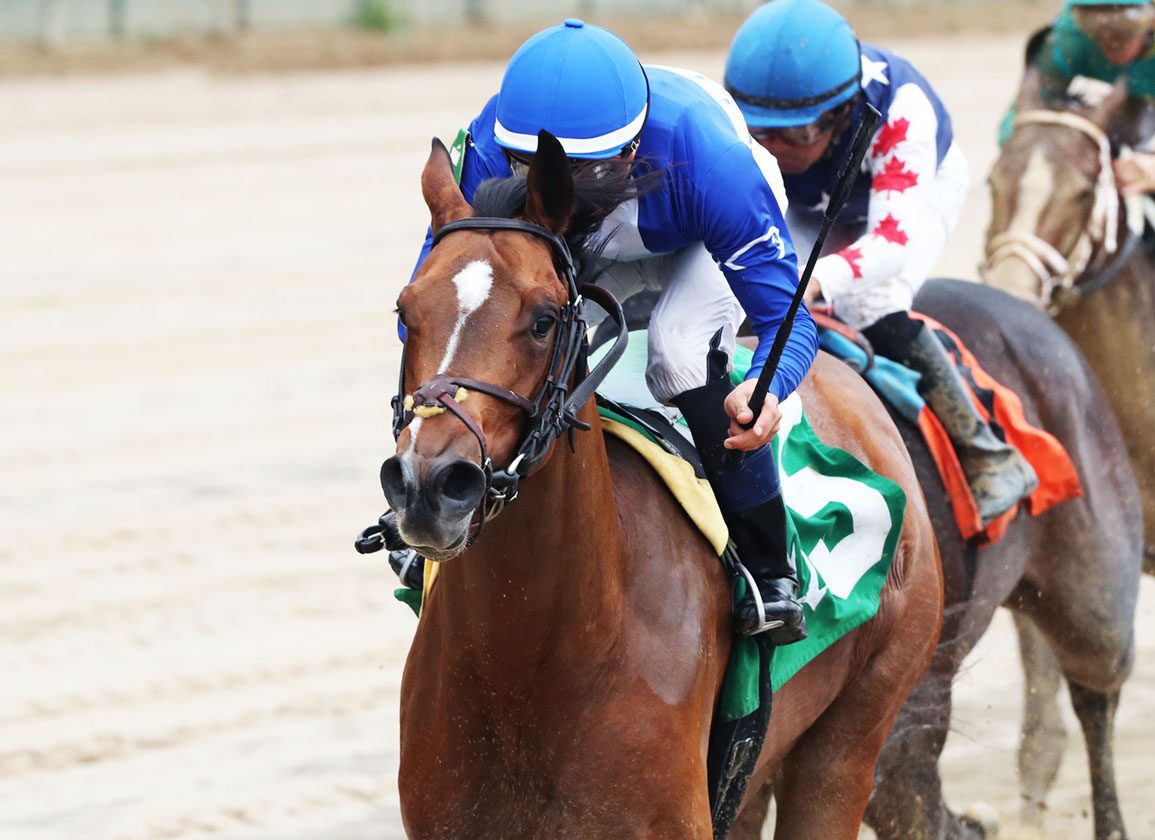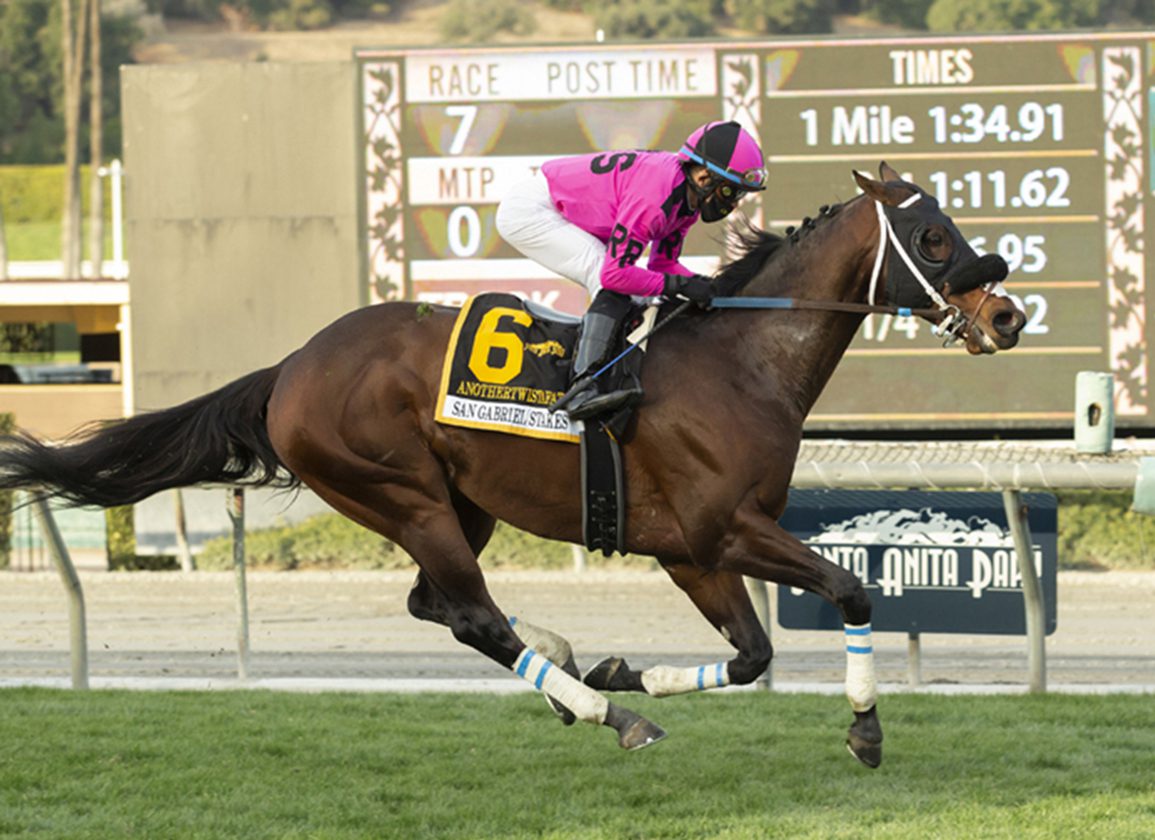By Jessica Martini
The X-Ray Files series, now in its second year and presented in cooperation with the Consignors and Breeders Association, uses conversations with buyers and sellers to contribute to the discussion on the sales and training process.
Veteran bloodstock agent Alistair Roden has found success buying for clients at all ranges of the market. Among his stakes-winning acquisitions already this year are Riley Allison Derby winner Lucky Jeremy (Lookin at Lucky) and Turfway Prevue S. winner Vote No (Divisidero), both of whom were purchased for $50,000 at last year's OBS June 2-Year-Olds in Training Sale. He was also responsible for the acquisition of subsequent graded stakes winners Abeliefinthislivin (Arrogate) and Anothertwistafate (Scat Daddy), as well as multiple graded stakes placed Tobys Heart (Jack Milton) and Ajourneytofreedom (Hard Spun). All were purchased at the 2-year-old sales.
“Some of the soundest horses I have bought in my career and who have gone on to race as 5-, 6-, 7-year-olds have come from the 2-year-old sales,” Roden said.
Asked what he looks for in potential juvenile purchases, Roden has a simple answer.
“You want an athlete, obviously,” he said. “Sometimes at the 2-year-old sales we are inclined to give up on conformation a little bit, whereas at the yearling sales we are not because we get the advantage of seeing them come down the lane and seeing how they perform going fast.”
Speed has become the name of the game at the 2-year-old sales and Roden said it is difficult to take the clock out of the buying equation.
“It's gotten to be these times are unbelievable,” he said. “I bought Lucky Jeremy last year and he went in :21 1/5. But if they go in :24 or :11, it's kind of hard to get your head around it. If you call a guy up and say, 'Listen, I found this lovely horse. I really like him.' The first thing they are going to ask you when you are at the 2-year-old sale is, 'What did he work in?' If you say :11 or :22, you can feel the enthusiasm just dying in the conversation. Am I a big proponent of the speed? Probably not. But at the end of the day, that's what sells horses. That's why they are doing it. If they could sell them for $1 million and go :11 and change, they would probably do that. But obviously, they can't.”
Having a vet whose work you trust is another big component of buying at the sales.
“I usually find the horse and then part of the process of buying the horse is doing the vetting,” Roden said. “Sometimes I will have a little sneak at the vet report at the barn just to see if there is anything significant. I don't want to call a guy up and say I have a really nice horse and then we vet them and he flunks the vet. I have a look at the vet report just to see that there is nothing major there, or from what I can interpret, there is nothing major. And then we go through the vetting.”
Roden continued, “At the end of the day, I put a lot of faith in the vets. The one vet I use, I've been using him for probably close to 20 years. You have to have faith in them, you know. And if he sends something back and says, well this horse is OK or something in the throat, but otherwise ok, or something in the knee, but he's ok with it, I will call him up and question it. That spur in the knee, do we need to worry about that? Rather than just going by what he said. I question things. I have faith in him. He has maybe been wrong a couple of times, I am sure I have been wrong a couple of times, numerous times, but that's the horse business. But I am not going to go buy a horse that has a major vet issue. I am not going to argue with the vet. Because if you're going to argue with the vet, why are you hiring him in the first place?”
With three decades of experience in the industry, Roden agreed he has developed trusted relationships with many sellers, but a consignor's say-so at the sales only goes so far.
“I know most of those guys down there and you always ask, 'Is this horse ok? Have you had any issues? Does he train OK?' I have that trust factor, but I am not just going to buy the horse because of that,” he explained. “I am going to do my homework. They may be friends, but they are still there to sell horses. They have to make a living selling horses and they've had those horses since last fall and they have been around them a long time. They know what's what. If they send you a horse that has a major issue, as far as training or doesn't want to train, or has a major issue and they pull the wool over your eyes, it's obviously going to come back on them. I am not going to keep it to myself. If someone is screwing me, there will be other people knowing about it. You can have it go the wrong way, it can always happen. But if someone blatantly screws you, it's a small world.”
It is a buyer's prerogative to have his newest acquisition drug tested at the sale and, while he hasn't done that in the past, Roden said he is considering doing it in the future in the wake of increased scrutiny with the implementation of the Horseracing Integrity and Safety Authority's Anti-Doping and Medication rules.
“I haven't done testing because you always think, 'Will I open a whole can of worms?' The guy gave the horse two grams of bute and it's going to beat you,” Roden said. “From an agent's perspective, now, I think you almost have to do it. You have to cover yourself. If you go out and spend a couple hundred thousand dollars on a horse and he ends up testing for Clenbuterol or something, the guys on the track–like in the case off Jeff Englehart and they are going to rule the trainer off–well who is the trainer going to blame? Who is the idiot who bought the horse?”
Roden said it seemed like there was increased testing at the OBS March sale, but he questions when such testing should start.
“The 2-year-old guys will say, 'Well, I didn't give the horse anything.' Maybe it came from the yearling sale. What do you do? Do you do it when the horse first goes through a sale? I am not saying that it is the right thing to do. I don't know, but you think the sales company will want to take care of buyers as well. I think [additional testing] is probably a good thing because if there is anybody doing anything at the sale, it makes them a little wary of it, maybe make them think twice.”
Finding a trusted agent is important for any buyer thinking of entering the sales arena, according to Roden.
“You have got to have an agent you can trust who is going to guide you in the right direction and not just go out and buy a horse just for the sake of making a commission,” he said. “You have to have somebody that you trust to start with and if you have somebody you trust, you are hoping that he has a team around him that he trusts.”
To read the first installment of the 2024 X-Files season with David Scanlon, click here. To search the 2023 season, click here.
Not a subscriber? Click here to sign up for the daily PDF or alerts.








